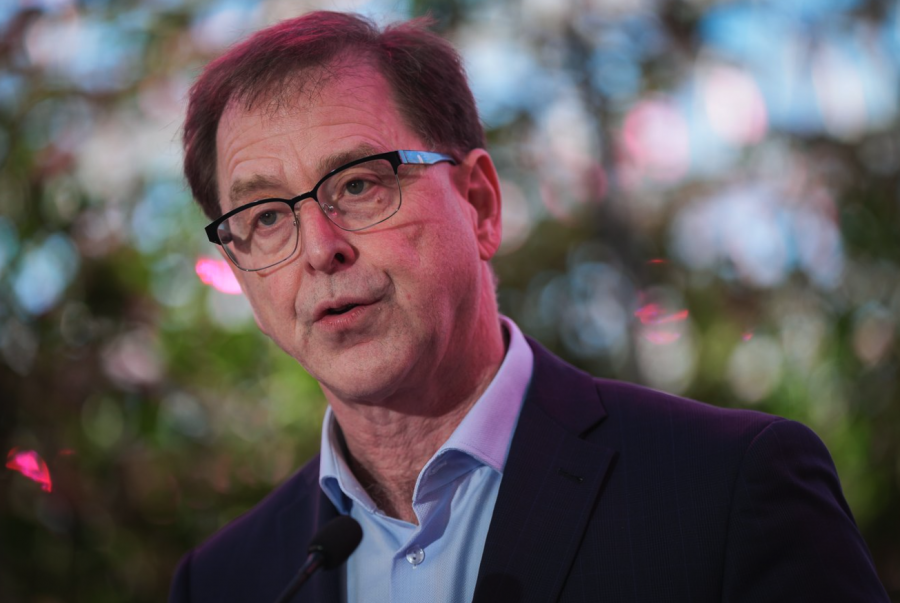British Columbia's power utility has begun the process to boost the province's baseload electricity generation capacity in a bid to meet the province's growing demand from residents and industries.
Baseload capacity refers to constant and stable power sources and Energy Minister Adrian Dix said Wednesday that BC Hydro is requesting expressions of interest from companies to provide geothermal or hydroelectric projects to expand long-term power capacity and meet peak demand.
BC Hydro has also launched a second request seeking partners who can deliver "market-ready technologies" for boosting power conservation in homes and buildings across the province.
Dix said both requests are aimed at matching B.C.'s growth potential with stable and affordable electricity supply.
"It is so important to our system," Dix said at a news conference alongside BC Hydro chief executive Chris O'Riley.

"(It is) important because it allows us to take on relatively low-cost, intermittent energy such as wind and solar, important because it's going to power our economy at a time we have never seen so much demand for electricity and so much potential for growth."
Dix said BC Hydro may explore as part of the request several types of projects including "pumped storage" hydro power generation, a system where water is pumped to an elevated reservoir during times of low electricity demand then released to generate power during peak periods.
The province did not specify how much baseload power generation it wants to add in the new request, and Dix said that was a specific decision because BC Hydro wanted to cast a wide net in terms of possible solutions it might adopt.
"There isn't a number," Dix said about the amount of electricity B.C. is looking for. "The reason for (the) expression of interest, the reason we have a short turnaround, is we want to see what's out there.
"We believe that BC Hydro needs more firm power. That could be hydro power. That could things such as geothermal power."
O'Riley said the conservation technology being sought in the second request is also crucial to B.C.'s overall energy picture.
"We're also focused on energy efficiency because … the cleanest and most cost-effective energy … is power that we don't use," he said. "As part of our expanded $700 million energy efficiency plan, we're looking for partners who can bring market-ready technologies that significantly improve energy efficiency in homes and businesses across B.C. and that will help our customers save energy and money."
The province said it will accept applications on both the baseload power generation and conservation technologies until September.
BC Hydro has been dealing with a long-term drought that forced the province to import electricity last fiscal year.
The Crown utility said 13,600 gigawatt hours of power was imported in 2024 — about 22 per cent of all B.C's power — but that the province has been a net electricity exporter for eight of the last 15 years.
The utility last year issued a call for power from renewable sources, later selecting nine wind and one solar project — but these are distinct from baseload projects because they rely on what BC Hydro calls "uncontrollable conditions."
Dix dismissed the notion that recent drought conditions and B.C. having to import power were factors in the process to look for more baseload power generation capacity, noting that this year's conditions are "looking better than last year" while "still facing the impact" of droughts.
"This call for power … is about the growth of our economy, about the opportunities in mining, about the requests for power that are at an extremely high level," he said. "We've got to build out clean electricity, which is one of our significant economic advantages in B.C.
"We have a lot more people in B.C. than we did … (and) we want to be in a position to build B.C. in the way that we did in the 1960s, which advanced a period of exceptional growth in our economy."

















